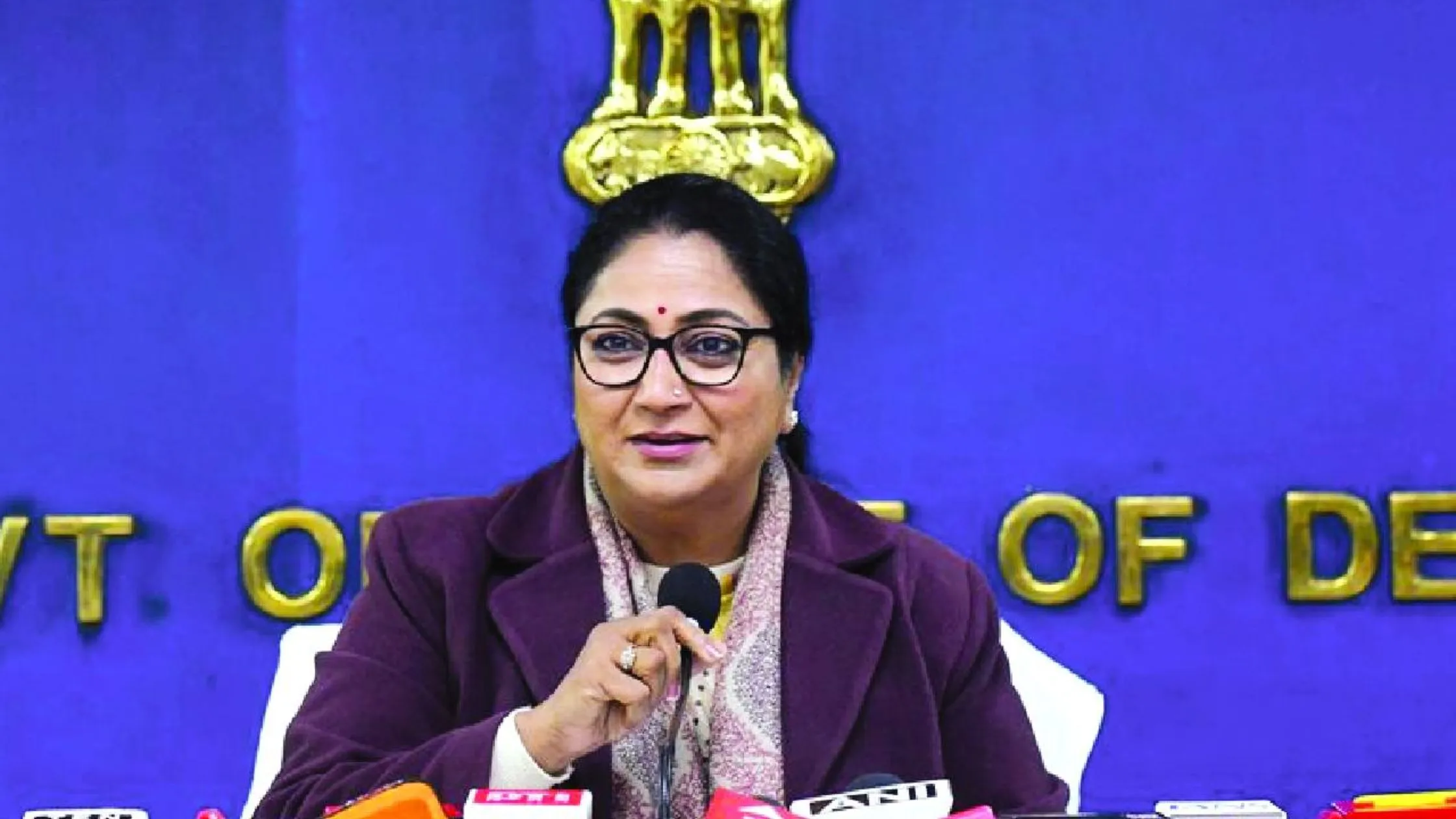Table of Content
▲
Homebuyers in Noida’s Sector 150 Sports City have received a significant relief after the Supreme Court (SC) permits conditional OCs for six Godrej Nest towers in Sector 150. The apex court directed the Noida Authority to issue conditional occupancy certificates for six residential towers within six weeks, bringing long-awaited respite to over 400 flat owners.
The decision comes after prolonged legal disputes and pending dues, offering homebuyers a chance to access their homes with official occupancy approvals, even as further legal processes continue.
Background: Godrej Nest & Noida Sports City
The Godrej Nest project in Sector 150 comprises six residential towers within the broader Noida Sports City, which was launched between 2010 and 2016. Spread across 798 acres in Sectors 78, 79, 101, 150, and 152, Noida Sports City was originally envisioned to include world-class sports infrastructure, three golf courses, and an international cricket stadium.
However, over the years, developers prioritized residential and commercial construction, leaving much of the promised sports and recreational infrastructure incomplete. The Godrej Nest project, while delivered as premium residential units, became embroiled in disputes over delayed approvals, dues, and regulatory clearances.
Also Read: Hiranandani Communities Unveils 225-Acre Township in Alibaug Worth ₹17,000 Crore
Legal Journey Leading to the SC Order
The path to the Supreme Court ruling began with the Allahabad High Court’s February 2025 order against Lotus Green and other consortium partners of the Noida Sports City project. The court highlighted alleged financial irregularities, pending dues, and incomplete sports infrastructure obligations.
Following this, the Noida Authority issued notices to consortium partners, prompting Brick Rise Developers to clear ₹80 crore in dues, with other partners expected to follow suit. A CBI inquiry was also ordered to investigate the alleged irregularities and ensure compliance with original project commitments.
Supreme Court Decision
A bench comprising Justice MM Sundresh and Justice Satish Chandra Sharma passed the order, directing the Noida Authority to grant conditional OCs for the six Godrej Nest towers within six weeks.
The court stipulated that these certificates are conditional, subject to compliance with Noida’s building regulations, fulfillment of sports/recreational facilities, and settlement of pending dues. Importantly, the ruling is project-specific, meaning other towers or homebuyers in Sports City cannot claim similar relief based on this order.
This ruling marks a critical step in legal intervention, as SC permits conditional OCs for six Godrej Nest towers in Sector 150, providing targeted relief while maintaining the overall accountability of developers.
Developer & Authority Reactions
While the Noida Authority’s response has been limited, consortium partners, particularly Brick Rise, have begun clearing dues to comply with court directives. The Godrej Group has not publicly commented on the matter. Market experts view the ruling positively, noting that it reinforces legal clarity and buyer confidence in premium residential projects.
Implications for Homebuyers
The Supreme Court’s order provides immediate advantages to over 400 flat owners. With conditional occupancy certificates in hand, buyers can legally occupy their homes, access essential services such as electricity and water, and secure their investments.
This decision also restores trust in project delivery timelines and ensures that developers prioritize completion and compliance with regulatory norms, mitigating prolonged uncertainty for homebuyers.
Also Read: Signature Global, WRI India launch pilot study to curb construction air pollution
Broader Context: Conditional OCs in Real Estate
A conditional occupancy certificate allows homeowners to occupy the property legally, even when certain minor compliances are pending. The SC’s ruling balances legal oversight with practical relief for homebuyers, offering a model for project-specific interventions in similar disputes.
Such rulings are vital in urban India, where large-scale residential projects often face delays, leaving buyers in limbo. By granting conditional OCs for the six Godrej Nest towers, the court has set an example of ensuring homebuyer welfare while preserving regulatory standards.
Conclusion
The Supreme Court’s intervention, where SC permits conditional OCs for six Godrej Nest towers in Sector 150, provides a long-awaited relief for homebuyers and reinforces the need for accountability among developers.
For the 400+ flat owners, this order not only ensures legal occupancy but also restores confidence in project delivery, marking a positive step toward resolving infrastructure and compliance challenges in Noida Sports City.
As the real estate sector continues to grow, such targeted rulings can pave the way for faster project completions, better regulatory oversight, and stronger trust between developers, authorities, and homebuyers.

 permits conditional OCs for six Godrej Nest towers in Sector 150_1759222344.webp)

_1771224636.webp)



Ans 1. Conditional occupancy certificates allow homeowners to legally occupy a property even when certain minor compliances or obligations, such as completion of sports facilities or dues, are pending. They provide immediate legal access while ensuring developers continue to fulfill project requirements.
Ans 2. The SC recognized that homebuyers had been waiting for years due to pending approvals, legal disputes, and dues. By issuing conditional OCs, the court provided relief to over 400 flat owners, allowing them to occupy their homes while ensuring compliance with building regulations and settlement of pending obligations.
Ans 3. The order specifically applies to six residential towers in Sector 150 of Noida Sports City. Other towers or projects in the area are not covered under this ruling.
Ans 4. Developers must comply with Noida’s building regulations, complete promised sports and recreational facilities, and settle any pending dues. The conditional OCs are contingent on fulfilling these requirements within the stipulated time.
Ans 5. Homebuyers can now legally occupy their apartments, access essential services such as electricity and water, and secure their investments. It provides relief from prolonged uncertainty and restores confidence in project delivery.
Ans 6. Godrej Nest is part of Noida Sports City, which spans 798 acres across Sectors 78, 79, 101, 150, and 152. Initially envisioned with world-class sports infrastructure, golf courses, and a cricket stadium, the project faced delays in approvals, incomplete facilities, and pending dues over the years.
Ans 7. The Allahabad High Court had earlier highlighted financial irregularities and incomplete infrastructure obligations. Notices were issued to consortium partners, and certain dues were cleared. The Supreme Court then intervened to grant conditional OCs for the six towers.
Ans 8. Some consortium partners, like Brick Rise, have started clearing pending dues to comply with court directives. The Godrej Group has not made a public statement yet. Market experts see this as a positive step for buyer confidence.
Ans 9. No, the order is project-specific and applies only to the six Godrej Nest towers. Other buyers or towers in Sports City cannot rely on this SC order for conditional OCs.
Ans 10. They balance regulatory oversight with practical relief, ensuring homeowners can occupy properties while developers complete remaining obligations. This mechanism reduces prolonged uncertainty and strengthens trust between buyers, authorities, and developers.